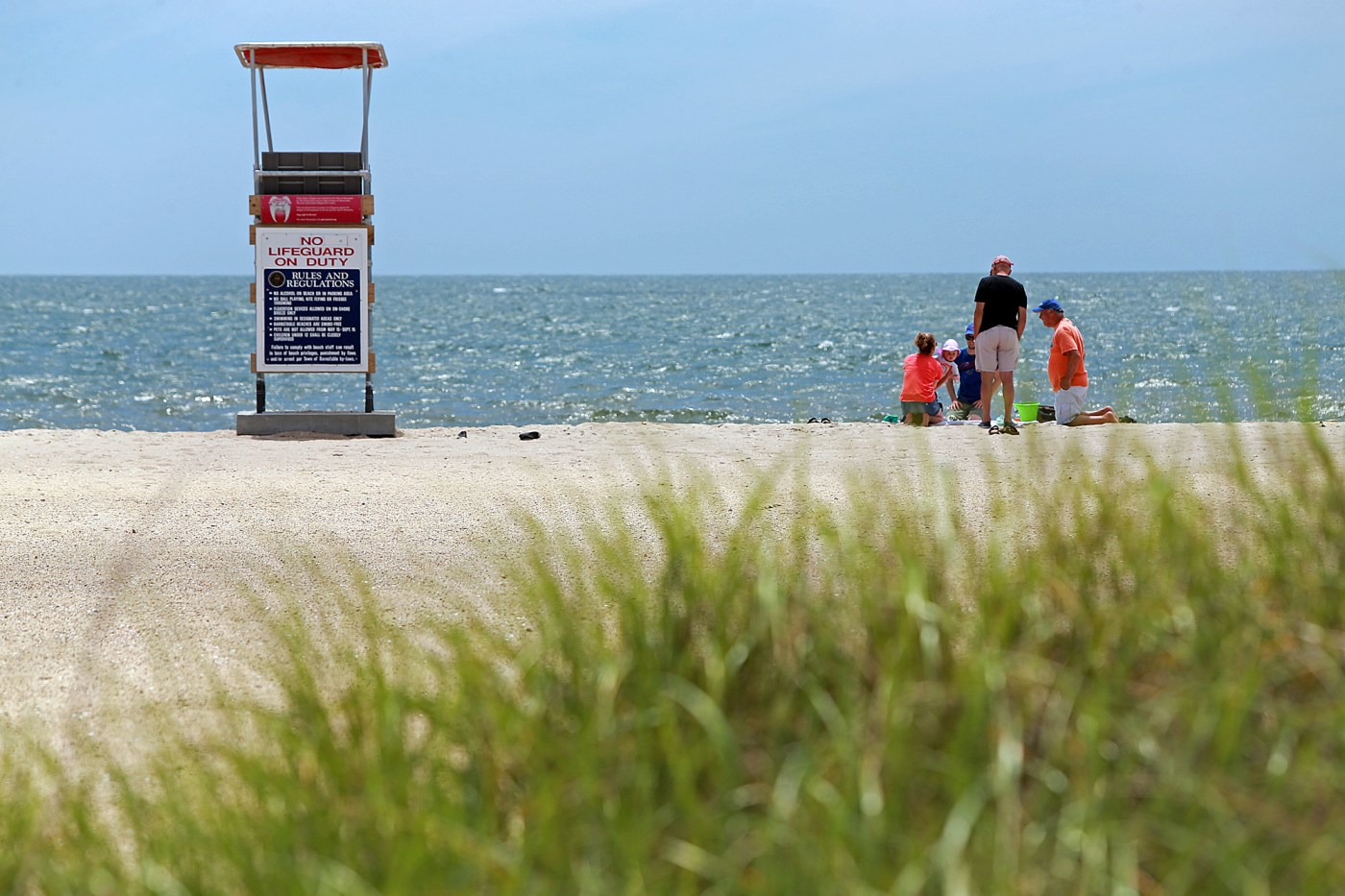
Cape Cod town to go to trial after residents sue over closed-door meetings on wind farm
A lawsuit seeking a temporary stoppage to a proposed wind farm in the Nantucket Sound is scheduled to head to trial in August, with a group of Cape Cod residents slamming a town council for conducting closed-door meetings relative to the project.
Barnstable County Justice Michael Callan has set a bench trial for Aug. 27, as nine Centerville residents allege the Town Council, town manager and town attorneys violated an open meeting law by discussing and voting on the project agreement in executive session.
Callan made no action on the plaintiff’s motion for a preliminary injunction at Barnstable Superior Court on Thursday, ordering the request be consolidated and advanced to trial next month.
Craigville Beach would be the landing spot for a transmission line from the 800-megawatt wind farm, with four miles of underground utility infrastructure running from the beach parking lot to a proposed six-acre substation on a residential road in Centerville. Two cables would span 6.9 miles on the ocean floor.
Residents behind the civil suit, filed in court last Thursday, are requesting the votes taken in executive session, on April 4 and June 13, be nullified and set aside.
Specifically, the Town Council’s reaffirmation of a so-called host community agreement with developer Avangrid guarantees additional financial and supportive benefits to the community — $16 million within 60 days of the project’s financial close, a revision of an original payment schedule over 20 years.
Town attorney Karen Nober, during a June 27 meeting, revealed that councilors gave Avangrid, the parent company of the original project applicant, Park City Wind, the go-ahead on the endeavor two weeks earlier in executive session.
The approval came a year after deteriorating economic conditions forced Park City Wind to terminate its contracts. The Town Council voted in a public session last October to put the easements on hold.
In motions of opposition to the injunctive relief, town officials highlighted how they felt Park City Wind, LLC, the original project applicant, would sue the town if it didn’t deliver easements subject to the host community agreement.
The state Energy Facilities Siting Board approved the project last December, authorizing a specific route for the transmission cables.
“The Council reasonably expected it would be sued,” officials wrote in a motion to oppose on Wednesday. “But the threat of litigation did not need to be said aloud. No one can reasonably assert that any company would walk away from millions of dollars in investments and billions of dollars in revenue without exercising its legal rights.”
Councilors with town attorneys evaluated available legal options for seeking project route changes, mitigation measures, environmental impact reductions and compensation during the executive sessions, Nober said at a July 18 council meeting.
“This sort of candid assessment, if provided in open session, would be provided in full view … and would irretrievably prejudice Barnstable’s ability to litigate,” the motion to oppose states. “Since it was permissible to discuss potential litigation in executive session, it was also permissible to discuss settlement and adopt a settlement agreement in executive session.”


